Israeli Archeologist Says Bible Stories Are a Myth
The Biblical History of Israel Is A Lie
Herzog is a JEW, so coming from the land of Israel and a Jewish scholar, he said it never happened.
That's because it's all mythology
Archaeologist Draws Fire
for Doubting Biblical Accounts
Africa Speaks Homepage Salt Lake City Tribune, 6 Nov 99
By Matthew Kalman
USA Today
JERUSALEM; An Israeli archaeologist is drawing fire for claiming that the biblical history of the Jewish people is probably fiction.
In an article last week in Ha'aretz newspaper, Ze'ev Herzog, a professor at Tel Aviv University argued that the Exodus of the Hebrews from Egypt probably never happened, the Ten Commandments were not given on Mount Sinai, and Joshua never conquered the land of Israel. Herzog said that if there was a King David, he probably was no more than a tribal chieftain. The same holds for King Solomon, Herzog said.
"The many Egyptian documents known to us do not make any reference to the sojourn of the Children of Israel in Egypt or the events of the Exodus," Herzog said. "Generations of scholars tried to locate Mount Sinai and the stations of the tribes of Israel in the desert. Despite all this diligent research, not one site was identified that could correspond to the biblical picture."
Herzog said there is no evidence that Joshua led the children of Israel into the Holy Land or brought down the walls of Jericho.
"Repeated excavations by various expeditions... have only yielded disappointments," he said. "During the period when the conquest would have taken place, there were no cities there, and of course no walls to bring down."
To many people in Israel, such claims smack of blasphemy, even though many scientists agree with Herzog.
"What did they expect to find? The bones from Pharaoh's dreams?" scoffs Rabbi Nachum Rabinovitch, head of Maale Adumim Yeshiva and a former principal of Jews' College in London. "The fact of the matter is that details are very scant in the text. Frequently, we don't even really understand what it says. To say that archaeology can prove or disprove anything is ridiculous."
Not just religious leaders are angered. Many secular Israelis see the modern Jewish state as a revival of the biblical Hebrew kingdoms. To them, challenging the Bible means challenging the legitimacy of the modern Jewish claim to the land of Israel.
"I adhere to the view that the Bible is our basic starting point," said Tommy Lapid, leader of the avowedly secularist Shinui Party. "No other people in the world has a book like the Hebrew Bible, so why is Professor Herzog feeding us this nonsense?"
Herzog also has drawn fire from scholars. Adam Zertal, an archaeologist at the University of Haifa, has dedicated his life to mapping the biblical episodes in Samaria, including the entry of Joshua into the Holy Land.
"We found almost certain proof that the story of the entry into Israel is very believable," said Zertal, who has spent eight years excavating a site on Mount Ebol, where the Bible states Joshua set up his first altar to God. "The relevant materials are in the field. We only have to find them."
"Archaeology does not have the power to disprove the written record," said Avraham Malamat, a Jewish history expert at the Hebrew University in Jerusalem. "If you ask a good archaeologist, he will say that he cannot find out the entire truth."
Herzog is surprised at the criticism. "I don't think it is right to guess at motives, based on the results of scientific inquiry," he said.
"Archaeology has always been used in this society and used to point in one direction," he said. "Now I'm suggesting that perhaps it should be used to point in another direction."
Palestinian and European archaeologists accuse their Israeli colleagues of politicizing archaeology to bolster Jewish claims.
Palestinian archaeologist Hamdan Taha has been excavating Tel Es-Sultan, the ancient site of Jericho. "There is no proof of any wall from the assumed time of Joshua's invasion," Taha said. "Nothing has been uncovered here in the last 100 years of excavation. Archaeology must be viewed as a scientific enterprise and no more as an ideological means to prove or disprove modern political claims."
Many contemporary biblical archaeologists support most of Herzog's views.
It is a different story, however, for the Israeli public, which idolizes biblical heroes such as King David.
While conceding that the Bible probably glorified David and Solomon, Avraham Biran, head of archaeology at Jerusalem's Hebrew Union College, said an inscription he discovered at Tel Dan in northern Israel proves their prominence at the time. The Aramaic inscription, attributed to a king of Damascus, refers to a "House of David" and is believed to date from the ninth century B.C. -- 100 years after David.
"If an Aramaean king from the middle of the 9th century knew about the existence of David, why should an archaeologist say that he doesn't?"
Out of Egypt
The Myth of the Jewish 'Race'

Shlomo Sand is professor of history at Tel Aviv university
http://mondoweiss.net/2009/10/at-nyu-devilish-shlomo-sand-predicts-the-jewish-past-and-pastes-the-zionists.html
At NYU, devilish Shlomo Sand predicts the Jewish past and pastes the Zionists
by Philip Weiss on October 17, 2009 · 167 comments
Like 1 0 Retweet
Send to a Friend del.icio.us Digg Furl
Of all the events I’ve covered surrounding Jewish identity and Israel in the last year, none has given me so much pleasure as the lecture last night by Shlomo Sand at NYU on the Invention of the Jewish People. Most events I go to are grinding, awful, heartrending, often with lamentations and pictures of mutilated children. This one was pure intellectual deviltry of the highest order by a Pavarotti of the lecture hall.
And while it was fiercely anti-Zionist and included references to the mutilated children, it left me in just an incredibly elated mood. For I saw real light at the end of the tunnel, and not the horrifying dimness that surrounds almost all other events that deal with Israel politics here– for instance with the neoconservative Weekly Standard’s disgusting pursuit of J Street.
This pleasure was entirely Shlomo Sand’s achievement. He walked by me going down to the lectern and I noticed his physical vanity at once. He had expensive shoes on, designer jeans or cords, a zipup black jacket and a black shirt under that unbuttoned to the sternum. He is lean and mid-60sish, and behaves like a player. His beard is cut in an interesting manner, he wears designer glasses. I wondered if he dyed his hair. All glorious devil.
Sand has an excitable, self-referential style, and he began the lecture by breaking his guitar. “Jewish history is not my field.” No, but once he had discovered that the story of the connection of the Jewish people to the Holy Land was a myth, he decided that he would secretly explore the history but not publish until he got tenure for doing other work. Because if he published this first, “there would not be any chance of being a full professor. Not only in Tel Aviv. But at NYU too.”
Everyone laughed, but Sand said, “That is not a joke. I must write the book after I see that no one could touch me really.” More devil. Though Sand is right. This is no joke.
Sand studies European history, but Israel has a separate department in every school for Jewish history, and Zionists run these departments. “I have not a right to write about Jewishness.” The Zionist history holds that the Jews have an ancient connection biblically to the land, and were exiled from the Middle East in 70 AD, in what became the Diaspora.
The Jews of New York and Warsaw. Sand began to question this story when he saw archaeologists’ work about the early Christian times and also when he saw scientific data. The exile is absurd. The Romans persecuted the Jews. They didn’t exile them.
At this point came the first interruption by a Zionist. A bald man in the third row or so called out, “What about Bar Kochba?” And: the Jews weren’t exiled because they were killed.
Sand seemed to live for this interruption. He walked up to the audience with his eyes gleaming, and congratulated the man for his knowledge of the Bar Kochba revolt of 135 AD, after the Second Temple destruction, and agreed with him, but also dismissed him. Yes many Jews were killed.
And for the rest of the lecture Sand would dance toward this man and tease him that he was Jewish—he was—and urge him to buy the book to discover the gaps in his knowledge, or by the end of the lecture, say that he would buy the book for him himself, to improve him. More deviltry.
Back to the exile myth. The expelled diasporic Jews went in a straight line north to Europe, made a right into the land between the Caspian and the Black Seas, Kazaria, and also north to Russia and Poland; and when they got there in the 1800s they made a u-turn and started back to Palestine. The absurdity of the myth is that there were always Jews in the Middle East.
The Jews were peasants and mingled with other populations. The Jews were not passive actors. They were at times a majority in the Holy Land and conquerors of the Arabian peninsula before the Arabs, and of North Africa too. For a time, they did not have a bar against proselytization. The Maccabees were the first to undertake forced conversion. In the 8th century the Jews and the Muslim Berbers were likely the invaders of Spain.
Sand offered very little by way of evidence. You will find that in his “boring” book, he said. This was an aria not a chalktalk. The Jews of the Middle East made several kingdoms over the years. One in Yemen, another in Babylon, another in North Africa, where they fought the Arabs. Sand said he loves the curly hair of the Yemenite Jews. More deviltry, with some concupiscence thrown in.
The Ashkenazi Jews of Eastern Europe originated in Kazaria. They were hugely successful and founded a great city, Kiev. We can claim to have founded Kiev, but not Jerusalem, he said. Because the Jews who lived in the Holy Land stayed in the Holy Land. Many of the people we now call Palestinians were originally Jews. The chance that someone who lives in Hebron today and speaks Arabic is a direct descendant of a Jew in ancient times is 1000 times greater than the possibility that I am descended from a Jew, Shlomo Sand declared.
Let’s move on from the mythology to the issue of national identity. Identity is formed by many many associations. “I don’t deny Jewish identity. I’m not fighting against someone’s identity. There is identity of homosexuals. They are not a people. We are composed of a lot of identities.” Two Catholic share a religious identity, but again, that is not a national identity with a tie to land.
Nationalism took root in human political development in the 1800s. The Germans and French began the project by inventing the idea of a German and French people. The French history books declared outright in the first sentence that the Gauls were their ancestors. It was a way to valorize the nation state, which was an essential part of modernity.
What is a people? A people generally shares a way of life, a language, a food, a geography. There is no Jewish language. Shlomo Sand stumbles proudly in English, while of course many of the people in the audience were Jews speaking English. Food the Israelis have–stolen from the Palestinians—and still you must say that there is an Israeli people. But they are not the Jewish people. They are Israeli people, and the Palestinians are Palestinian people. Both made by Zionism.
The Zionist project began inventing the idea of a Jewish people in the 1870s as a reflection of other nationalisms. The Zionists turned to the Bible for the foundational myth. The biblical myths are taught in Israeli schools from before children are taught mathematics and language–taught about the biblical associations of Jews to this land. But the Exodus is a complete myth.
“As a historian, I try and predict the past. I’m not a prophet.” And what are the true predictions of the past: at the supposed time of the Exodus, the Egyptians also controlled Canaan. The kingdom of David and Solomon was not a kingdom at all, but a small settlement around Jerusalem.
Sand had run over his 45 minutes. In the Question and Answer period, his passion and intellectual majesty announced themselves. He sought to engage with the Zionists in the crowd, and did so out of moral fervor. When Sand said that Israel was not a democracy, and a Zionist called out, “It is a flawed democracy,” Sand bellowed. No: a democracy is founded on the idea that the people are the sovereign, that the people own the state.
That is the first principle of a republic going back to Rousseau. Liberalism and civil rights are not the core. Yes, Israel is a liberal society. It tolerates Shlomo Sand’s heresy, for instance, and puts him on TV. But it is a liberal ethnocracy.
Down the row from me were two Arabs. I recognized the man from other events I have been to. I noticed how fulfilled they were by the talk, how quietly approving, and it was in this connection that we saw Sand’s passion: on behalf of the Palestinians. This part of the lecture brought tears to my eyes, it was so forceful and unapologetic.
The idea that Joe Lieberman has a right to move to Israel tomorrow and a Palestinian whose ancestors have lived there for centuries cannot is an outrage, Sand said. But for 50 years the Palestinian Israelis were afraid to speak out.
“They were afraid because of the Nakba. They were afraid because of the military regime. Today this is a generation of young Palestinian Israelis that stop to be afraid. They become more anti-Israel in their politics the more they become Israelis.”
Ravishing fire.
Sand said that Gaza was just an intimation of the violence that might come when the Palestinians declare that they want a genuine democracy, a state of their own citizens in Palestinian-dominated Galilee. These are young Palestinian Israelis who don’t want to be part of the West Bank or of Gaza. They will be like the Kosovars of Serbia, who when the Serbs started to make an ethnic regime of the former Yugoslavia, did not want to be part of Albania, with whom they share religious connections, no they wanted to be their own country.
(And got it, by the way, 60 years after the world falsely promised the Palestinians that they could have a state.) “They will build in Galilee a state of their citizens. That will start to be the end of Israel. Israel won’t let Galilee become a state of its citizens. It will be a mass murder, I’m afraid.”
Don’t we want to get past the idea of the nation-state? Of course we do, Sand said, but that is the era we are in. And tell that to the Palestinians. They want a state. Sand is for the two-state solution because the Palestinians ought to get a state after being denied it forever.
As soon as the occupation, which has denied these Palestinians any civil or human rights for 42 years—more fire!—is ended, that is the day we throw ourselves into the project of making a confederation of Israel with Palestine and Jordan. The one-state solution is a utopia. “Utopia has to direct politics. Not replace politics. It’s too dangerous.” (Something like Hussein Ibish’s new book in that.)
When Sand spoke to Palestinian professors at Al Quds University, they told him to speak Hebrew, because they had all learned Hebrew in Israeli jails. And he told them that just because Israel had begun with a great crime did not mean that it had not begun.
“Even a child that was born from a rape has a right to live. ’48 was a rape. But something happened in history. We have to correct and repair a lot of things.” The next day the Palestinian papers had his rape line in big headlines.
You have not talked about anti-Semitism, or self-hatred, said another Zionist, with a cap on. “I am anti-racist. And an anti-anti-semite,” he said. “But look at me, do you think I hate the Jewish?” More devil eyes flashing. “I don’t hate myself… I hate the Jewish people? But that doesn’t exist. How can I hate something that doesn’t exist?”
More Zionist claptrap from the claque: You say that a Jew can’t marry non-Jews in Israel, but two men can’t marry each other in this country! Sand laughed. Men should be able to marry each other here if they want to, and anyone should be able to marry anyone else in Israel.
Why won’t the state recognize such marriages? Not because of the orthodox. No: the secular Jews gave the rabbis the power over marriage when they founded the Jewish state in ’48. They did so because “they were not sure of their identity, and needed religious criteria.”
What do you think of Israel Shahak, whose work says that ethnocentrism and chauvinism are built into the Jewish religion? Sand said that Shahak was a chemist and a man of tremendous moral force, but he didn’t know the material. (I say he’s right about this; all religious doctrines are interlarded with racism.)
Why are you not on Charlie Rose? asked a man with a beard. The man said, I watch Charlie Rose every night and I’m up to here with the Zionism on the show. He held his hand at his neck. Not just the Israelis, the American journalists who imbibe Zionism. Sand didn’t seem to know who Charlie Rose was. He has been on lots of Israeli TV shows. And been 19 weeks on the bestseller list in Israel. “Also in France.”
I thought, Why has Yivo not asked Sand to debate Michael Walzer? Two years back at Yivo/the Center for Jewish History, Walzer declared that the Jews are a people, a people like no other, without national borders.
They have maintained a political community for 2000 years without geographical sovereignty, through a religious-legal structure. Interesting ideas. And it would be a fabulous debate. Where are you chickenshit Yivo, when these great ideas are bursting forth from the Jews who hate what Israel is doing to our identity?
I hope I am conveying something of the power of this event, and its incredible optimism and second sight. Sand challenged every Jew in the room to reimagine the future. “Most of the Jews [in the world today] are a product of conversion… I see the shame. And it is a shame. If you are born in the 20th century, and we were all born in the 20th century– to base your identity on biology.”
I thought as always of the American Jewish project: to end the Israel lobby and to end the myth of Jewish outsiderness. Sand had addressed this too. “The destiny of Israel. And the destiny of the Middle East depnds a lot on you, Americans.” This was a subject for its own lecture. But it was necessary for the Americans now to “save us from ourselves. I’m not joking about this.”
Do you fear for your life? someone asked.
“I’m worried in New York. Not in Tel Aviv. It’s not a joke. Really, I’m not joking.”
Zionist nationalist myth of enforced exile
Israel deliberately forgets its history
An Israeli historian suggests the diaspora was the consequence, not of the expulsion of the Hebrews from Palestine, but of proselytising across north Africa, southern Europe and the Middle East
by Schlomo Sand
Every Israeli knows that he or she is the direct and exclusive descendant of a Jewish people which has existed since it received the Torah (1) in Sinai.
According to this myth, the Jews escaped from Egypt and settled in the Promised Land, where they built the glorious kingdom of David and Solomon, which subsequently split into the kingdoms of Judah and Israel. They experienced two exiles: after the destruction of the first temple, in the 6th century BC, and of the second temple, in 70 AD.
Two thousand years of wandering brought the Jews to Yemen, Morocco, Spain, Germany, Poland and deep into Russia. But, the story goes, they always managed to preserve blood links between their scattered communities. Their uniqueness was never compromised.
At the end of the 19th century conditions began to favour their return to their ancient homeland. If it had not been for the Nazi genocide, millions of Jews would have fulfilled the dream of 20 centuries and repopulated Eretz Israel, the biblical land of Israel.
Palestine, a virgin land, had been waiting for its original inhabitants to return and awaken it. It belonged to the Jews, rather than to an Arab minority that had no history and had arrived there by chance. The wars in which the wandering people reconquered their land were just; the violent opposition of the local population was criminal.
This interpretation of Jewish history was developed as talented, imaginative historians built on surviving fragments of Jewish and Christian religious memory to construct a continuous genealogy for the Jewish people. Judaism’s abundant historiography encompasses many different approaches.
But none have ever questioned the basic concepts developed in the late 19th and early 20th centuries. Discoveries that might threaten this picture of a linear past were marginalised. The national imperative rejected any contradiction of or deviation from the dominant story.
University departments exclusively devoted to “the history of the Jewish people”, as distinct from those teaching what is known in Israel as general history, made a significant contribution to this selective vision. The debate on what constitutes Jewishness has obvious legal implications, but historians ignored it: as far as they are concerned, any descendant of the people forced into exile 2,000 years ago is a Jew.
Nor did these official investigators of the past join the controversy provoked by the “new historians” from the late 1980s. Most of the limited number of participants in this public debate were from other disciplines or non-academic circles: sociologists, orientalists, linguists, geographers, political scientists, literary academics and archaeologists developed new perspectives on the Jewish and Zionist past.
Departments of Jewish history remained defensive and conservative, basing themselves on received ideas. While there have been few significant developments in national history over the past 60 years (a situation unlikely to change in the short term), the facts that have emerged face any honest historian with fundamental questions.
Founding myths shaken
Is the Bible a historical text? Writing during the early half of the 19th century, the first modern Jewish historians, such as Isaak Markus Jost (1793-1860) and Leopold Zunz (1794-1886), did not think so. They regarded the Old Testament as a theological work reflecting the beliefs of Jewish religious communities after the destruction of the first temple.
It was not until the second half of the century that Heinrich Graetz (1817-91) and others developed a “national” vision of the Bible and transformed Abraham’s journey to Canaan, the flight from Egypt and the united kingdom of David and Solomon into an authentic national past. By constant repetition, Zionist historians have subsequently turned these Biblical “truths” into the basis of national education.
But during the 1980s an earthquake shook these founding myths. The discoveries made by the “new archaeology” discredited a great exodus in the 13th century BC. Moses could not have led the Hebrews out of Egypt into the Promised Land, for the good reason that the latter was Egyptian territory at the time. And there is no trace of either a slave revolt against the pharaonic empire or of a sudden conquest of Canaan by outsiders.
Nor is there any trace or memory of the magnificent kingdom of David and Solomon. Recent discoveries point to the existence, at the time, of two small kingdoms: Israel, the more powerful, and Judah, the future Judea.
The general population of Judah did not go into 6th century BC exile: only its political and intellectual elite were forced to settle in Babylon. This decisive encounter with Persian religion gave birth to Jewish monotheism.
Then there is the question of the exile of 70 AD. There has been no real research into this turning point in Jewish history, the cause of the diaspora. And for a simple reason: the Romans never exiled any nation from anywhere on the eastern seaboard of the Mediterranean.
Apart from enslaved prisoners, the population of Judea continued to live on their lands, even after the destruction of the second temple. Some converted to Christianity in the 4th century, while the majority embraced Islam during the 7th century Arab conquest.
Most Zionist thinkers were aware of this: Yitzhak Ben Zvi, later president of Israel, and David Ben Gurion, its first prime minister, accepted it as late as 1929, the year of the great Palestinian revolt. Both stated on several occasions that the peasants of Palestine were the descendants of the inhabitants of ancient Judea (2).
Proselytising zeal
But if there was no exile after 70 AD, where did all the Jews who have populated the Mediterranean since antiquity come from? The smokescreen of national historiography hides an astonishing reality. From the Maccabean revolt of the mid-2nd century BC to the Bar Kokhba revolt of the 2nd century AD, Judaism was the most actively proselytising religion.
The Judeo-Hellenic Hasmoneans forcibly converted the Idumeans of southern Judea and the Itureans of Galilee and incorporated them into the people of Israel. Judaism spread across the Middle East and round the Mediterranean. The 1st century AD saw the emergence in modern Kurdistan of the Jewish kingdom of Adiabene, just one of many that converted.
The writings of Flavius Josephus are not the only evidence of the proselytising zeal of the Jews. Horace, Seneca, Juvenal and Tacitus were among the Roman writers who feared it. The Mishnah and the Talmud (3) authorised conversion, even if the wise men of the Talmudic tradition expressed reservations in the face of the mounting pressure from Christianity.
Although the early 4th century triumph of Christianity did not mark the end of Jewish expansion, it relegated Jewish proselytism to the margins of the Christian cultural world. During the 5th century, in modern Yemen, a vigorous Jewish kingdom emerged in Himyar, whose descendants preserved their faith through the Islamic conquest and down to the present day.
Arab chronicles tell of the existence, during the 7th century, of Judaised Berber tribes; and at the end of the century the legendary Jewish queen Dihya contested the Arab advance into northwest Africa. Jewish Berbers participated in the conquest of the Iberian peninsula and helped establish the unique symbiosis between Jews and Muslims that characterised Hispano-Arabic culture.
The most significant mass conversion occurred in the 8th century, in the massive Khazar kingdom between the Black and Caspian seas. The expansion of Judaism from the Caucasus into modern Ukraine created a multiplicity of communities, many of which retreated from the 13th century Mongol invasions into eastern Europe. There, with Jews from the Slavic lands to the south and from what is now modern Germany, they formed the basis of Yiddish culture (4).
Prism of Zionism
Until about 1960 the complex origins of the Jewish people were more or less reluctantly acknowledged by Zionist historiography. But thereafter they were marginalised and finally erased from Israeli public memory.
The Israeli forces who seized Jerusalem in 1967 believed themselves to be the direct descendents of the mythic kingdom of David rather than – God forbid – of Berber warriors or Khazar horsemen. The Jews claimed to constitute a specific ethnic group that had returned to Jerusalem, its capital, from 2,000 years of exile and wandering.
This monolithic, linear edifice is supposed to be supported by biology as well as history. Since the 1970s supposedly scientific research, carried out in Israel, has desperately striven to demonstrate that Jews throughout the world are closely genetically related.
Research into the origins of populations now constitutes a legitimate and popular field in molecular biology and the male Y chromosome has been accorded honoured status in the frenzied search for the unique origin of the “chosen people”. The problem is that this historical fantasy has come to underpin the politics of identity of the state of Israel.
By validating an essentialist, ethnocentric definition of Judaism it encourages a segregation that separates Jews from non-Jews – whether Arabs, Russian immigrants or foreign workers.
Sixty years after its foundation, Israel refuses to accept that it should exist for the sake of its citizens. For almost a quarter of the population, who are not regarded as Jews, this is not their state legally. At the same time, Israel presents itself as the homeland of Jews throughout the world, even if these are no longer persecuted refugees, but the full and equal citizens of other countries.
A global ethnocracy invokes the myth of the eternal nation, reconstituted on the land of its ancestors, to justify internal discrimination against its own citizens. It will remain difficult to imagine a new Jewish history while the prism of Zionism continues to fragment everything into an ethnocentric spectrum.
But Jews worldwide have always tended to form religious communities, usually by conversion; they cannot be said to share an ethnicity derived from a unique origin and displaced over 20 centuries of wandering.
The development of historiography and the evolution of modernity were consequences of the invention of the nation state, which preoccupied millions during the 19th and 20th centuries. The new millennium has seen these dreams begin to shatter.
And more and more academics are analysing, dissecting and deconstructing the great national stories, especially the myths of common origin so dear to chroniclers of the past.
As one lamp serves to dispel a thousand years of darkness, so one flash of wisdom destroys ten thousand years of ignorance
- Hui-Neng
All conditioned things are impermanent. Work out your own salvation with diligence.
- Buddha's last words
I have discovered that all of mans unhappiness derives from only one source, not being able to sit quietly in a room
- Blaise Pascal
It is the thoughtlife that pollutes
- Jesus
If you cannot find the truth right where you are, where else do you expect to find it?
- Dogen Zenji
I'd like to offer something to help you but in the zen school we don't have a single thing!
- Ikkyu
I gained nothing at all from supreme enlightenment, and for that very reason it is called supreme enlightenment
- the Buddha
"Zen Buddhism" is a sect of Buddhism which emphasizes meditation, not beliefs. The main emphasis of Zen Practice is to come to awakening, the very same awakening that the Buddha experienced 2500 years ago. When a student has awoken to the dharma and his clarity surpasses the teacher's and he has integrated this realization thoroughly into his life, the teacher may grant the student the title of "successor".
This process has been occuring between student and teacher all the way back to the Buddha. There actually is written account of the unbroken line of awakenings dating back 2500 years. Now what does it take to become a successor? Well it's not easy.
There is a lot of hard work that goes into cultivating realization. In most cases it takes a minimum of twenty years of diligent effort before a teacher grants it. And even then there's no guarantee. The student must have attained a certain level of awakening. So how do we accomplish this?
So how do we accomplish this?? Zen Buddhism has various techniques in order to see reality (see the techniques section). Most of these techniques focus one's mind in an extremely fine-pointed direction.
A place where habitual thoughts don't have a chance to show themselves because one's mind is so obsessively focused on a solitary point. When one's mind is so focused on something, and the person has the determination to not let go, enlightenment sometimes follows depending upon the stillness of the thoughts - where the persons thought comprehension of the world is no longer dominant, and consequently, the reality that has always surrounded becomes apparent.
Enlightenment is the experience of seeing all matter exactly how it is. Be assured that the exact amount of difficulty in life is precisely equivalent to delusional views that are held.
To see things how they are is a complete release of frustration. With arduous Practice, the practitioner starts to become free from the confusion that once was binding, while attaining an unshakable faith, detachment from ego. Practice reveals an elation because the beauty of life that was thought to be lost, is with us and always has been!
"Getting fired is natures way of telling you that you had the wrong job in the first place." - Hal Lancaster
"Life is not a problem to be solved, but a gift to be enjoyed." -Unknown
"The fool chatters, while the wise man listens." -Chiun (from the movie, Remo Williams, The Adventure Begins)
Krishnamurti & me
Me: How should I meditate?
K: Let us consider your question, you and I; not just I but both of us together, for if it is just I then the answer will be but brutish mumblings, perverse incantations of hollow formulae, 'pale tales signifying nothing.' So I ask that you consider your question 'How should I meditate?'
And look at your question from all perspectives: from the perspective of society and culture, from the perspective of men of good will and of single-celled amoebæ and from the perspective of those stuffed and rigid souls who have no perspective.
And when you consider all these perspectives, I trust that you will see that I must remain silent, absolutely silent, not saying one word, not even thinking of not saying one word... for to answer your question is to generate an expectation that you might in error actually follow my instructions.
Me (dejected & walking away): Sigh...
K (handing me a book): Oh, do please take one of my books before you go.
I read the cover: J Krishnamurti's "Do not Read this Book", Volume 7
HUMAN is in a slowed down state of existence. You have no memory of origin, on decelerating vibratory level as a physical being, temporarily unconscious of intelligent energy. You are temporarily within a lower evolutionary scale-to contract in to expand out in light.
"If something comes to life in others because of you, then you have made an approach to immortality." -Norman Cousins (1912-1990)
"Follow your bliss."
-Joseph Campbell (1904-1987)
"What befalls the earth befalls all the sons of the earth.
This we know: the earth does not belong to man, man belongs to the earth.
All things are connected like the blood that unites us all.
Man does not weave this web of life. He is merely a strand of it.
Whatever he does to the web, he does to himself."
-Chief Seattle (1786-1866)
"Meditation is not a means to an end.
It is both the means and the end."
-Jiddu Krishnamurti (1895-1986)
"No one can make you feel inferior without your consent."
-Eleanor Roosevelt (1884-1962)
"We are not human beings having a spiritual experience.
We are spiritual beings having a human experience."
-Pierre Teilhard de Chardin (1881-1955)
"Just as there is no loss of basic energy in the universe, so no thought or action is without its effects,
present or ultimate, seen or unseen, felt or unfelt."
-Norman Cousins (1912-1990)
"Nature is an unlimited broadcasting station, through which God speaks to us every hour, if we only will tune in." -George Washington Carver (1864-1943)













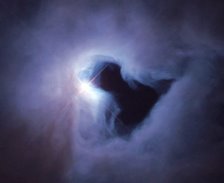

















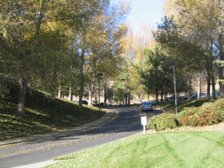















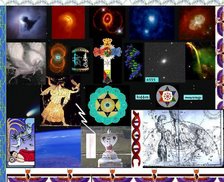
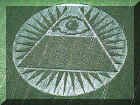
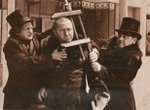



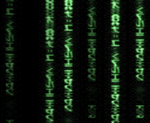


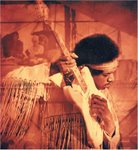
































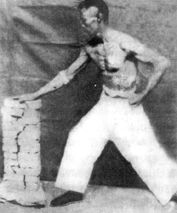



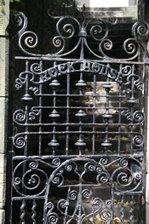

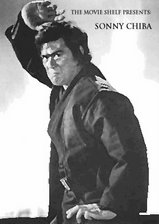

















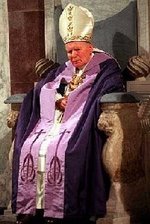




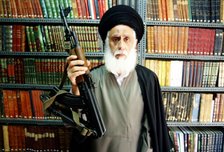



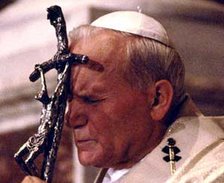



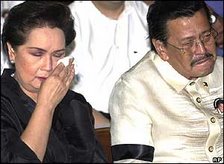

















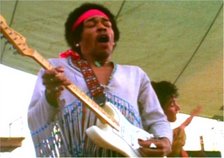


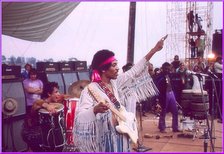










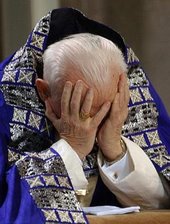







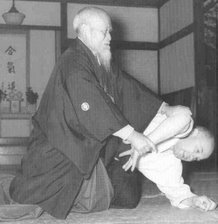

















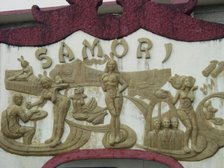





















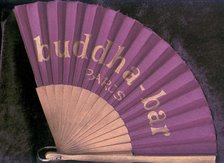
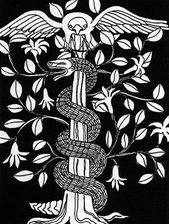








No comments:
Post a Comment